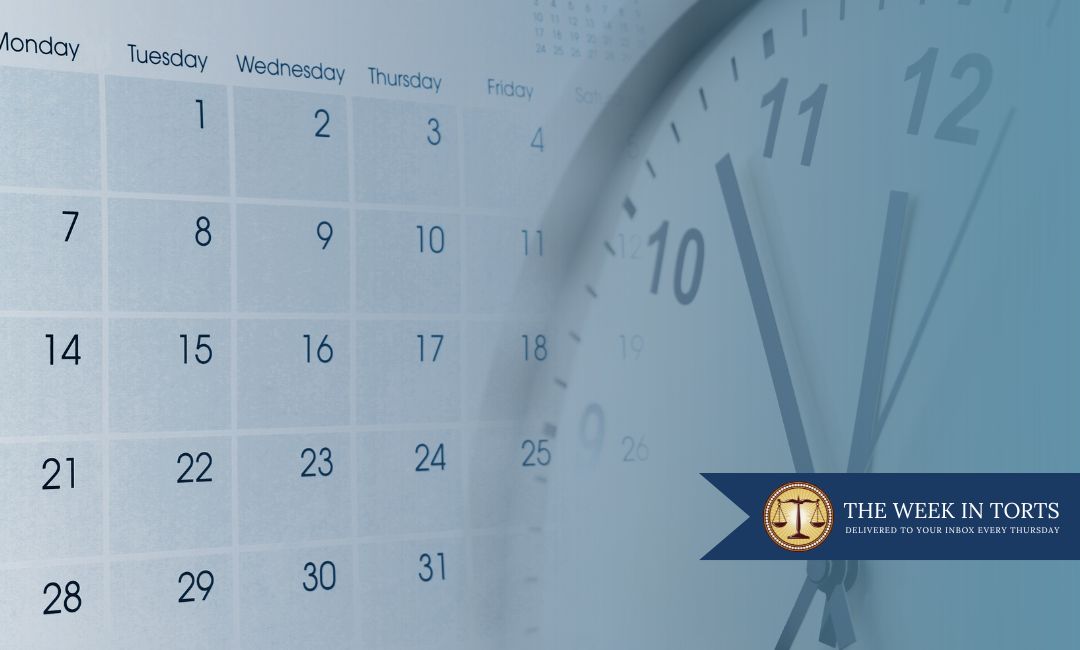The Week In Torts – Cases from October 20, 2023

Wait, can I have more time?
FLORIDA LAW WEEKLY
VOLUME 48, NUMBER 42
CASES FROM THE WEEK OF October 20, 2023
TRIAL COURT PROPERLY ENTERED FINAL JUDGMENT IN ACCORDANCE WITH ARBITRATION DECISION—PARTY MISSED THE 20 DAY DEADLINE TO FILE MOTION FOR TRIAL DE NOVO
Smith v. Bright, 48 Fla. L. Weekly D1998 (Fla. 1st DCA Oct. 11, 2023):
Section 44.103(5), Florida Statutes, provides in pertinent part: “[a]n arbitration decision shall be final if a request for a trial de novo is not filed within the time provided by the rules promulgated by the [s]upreme [c]ourt.”
The relevant rule requires a party to file a motion for a trial within 20 days after service of the arbitration award and findings (FRCP 1.820(h)). Because the complaining party failed to file the motion within the 20 day period, the trial court had to enforce the decision of the arbitrator.
Interestingly, the concurring judge wrote to explain that the time limits in the Florida Rules of Civil Procedure, including Rule 1.820, are not absolute. He noted that time can be enlarged by the trial court, including “after the expiration of the specified period…when failure to act was the result of excusable neglect.” Fla.R.Civ.P.1.090(b)(1)(B).
The judge quoted to the Fifth District’s decision in Boudot v. Boudot, stating that the determination of whether the failure to abide by a specified time limit constitutes excusable neglect is in essence an equitable one, which should take into account all the relevant circumstances, including prejudice to the other party, the reason for the delay, the duration of the delay, and whether the movant acted in good faith.
The concurring judge noted that none of those circumstances were present in this case, but provided support for a future circumstance when the time is missed under a rule.
REMEMBER TO REPLY TO AFFIRMATIVE DEFENSES
Green Gables Apartments v. AHG Tax Credit, 48 Fla. L. Weekly D2005 (Fla. 5th DCA Oct. 13, 2023):
FRCP 1.110(d) provides that defendants must affirmatively plead defenses of avoidance.
Rule 1.100(a) requires that if an affirmative defense is raised and the opposing party seeks to avoid it, the opposing party (i.e., the plaintiff) shall file a reply containing the avoidance. A “reply is mandatory when a party seeks to avoid an affirmative defense in an answer or a third-party answer.” Without a reply, the court views the party as having merely “denied” the affirmative defenses.
However, if the party (usually the plaintiff) has an “avoidance” to the avoidance/affirmative defense, the plaintiff must file a reply spelling out what that avoidance is (e.g., defense: workers compensation immunity; avoidance: unrelated works exception), or be barred from so arguing at trial.

